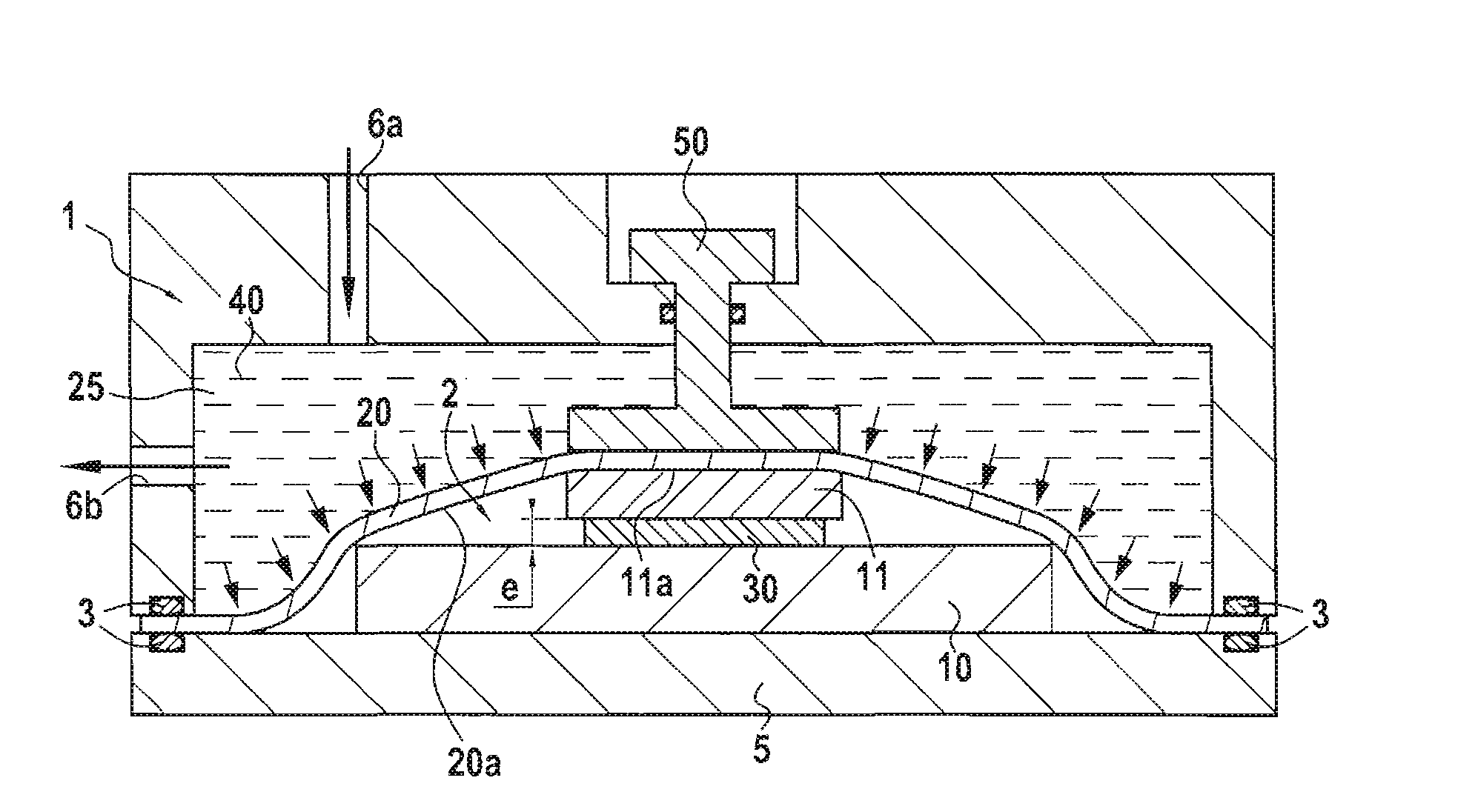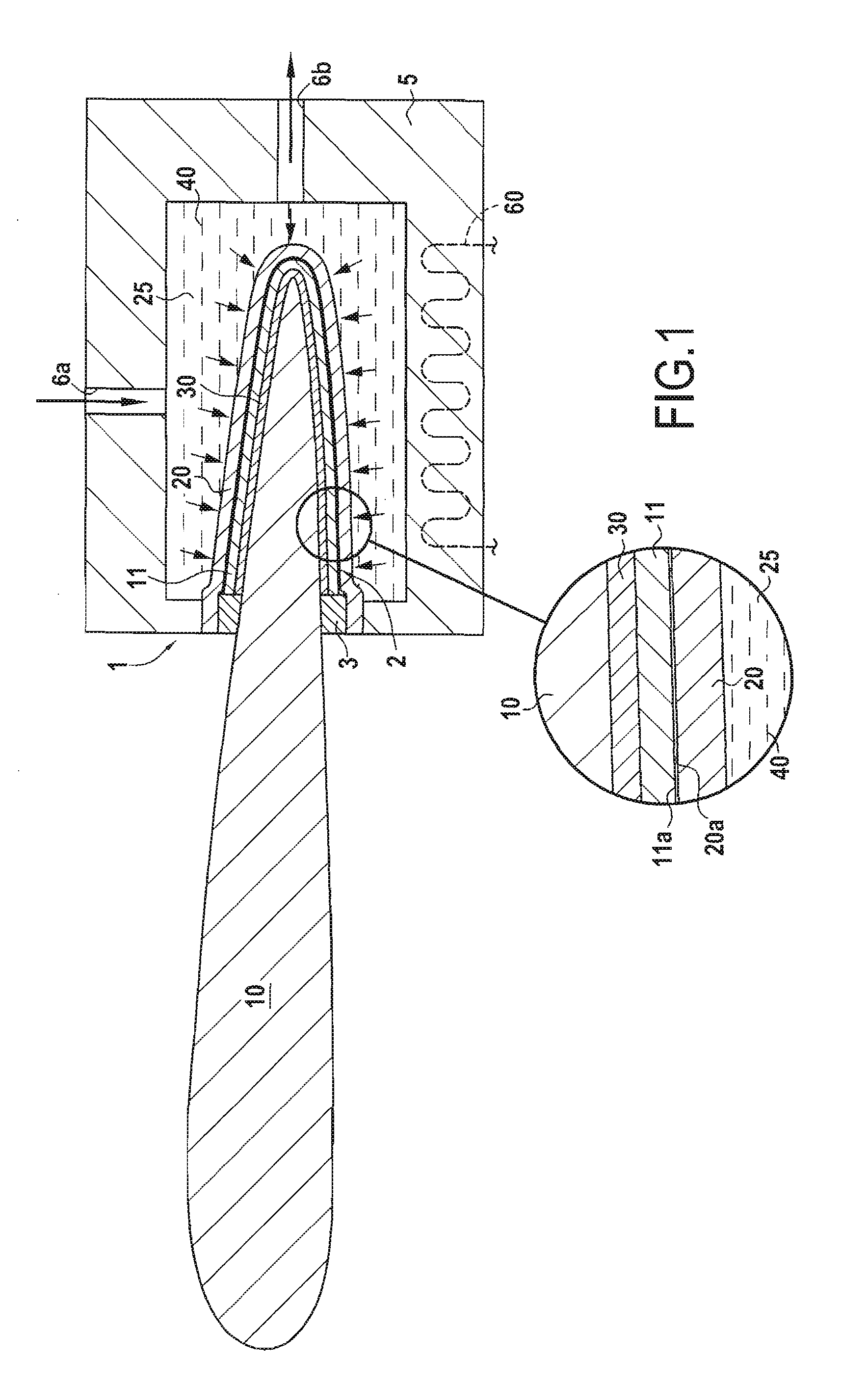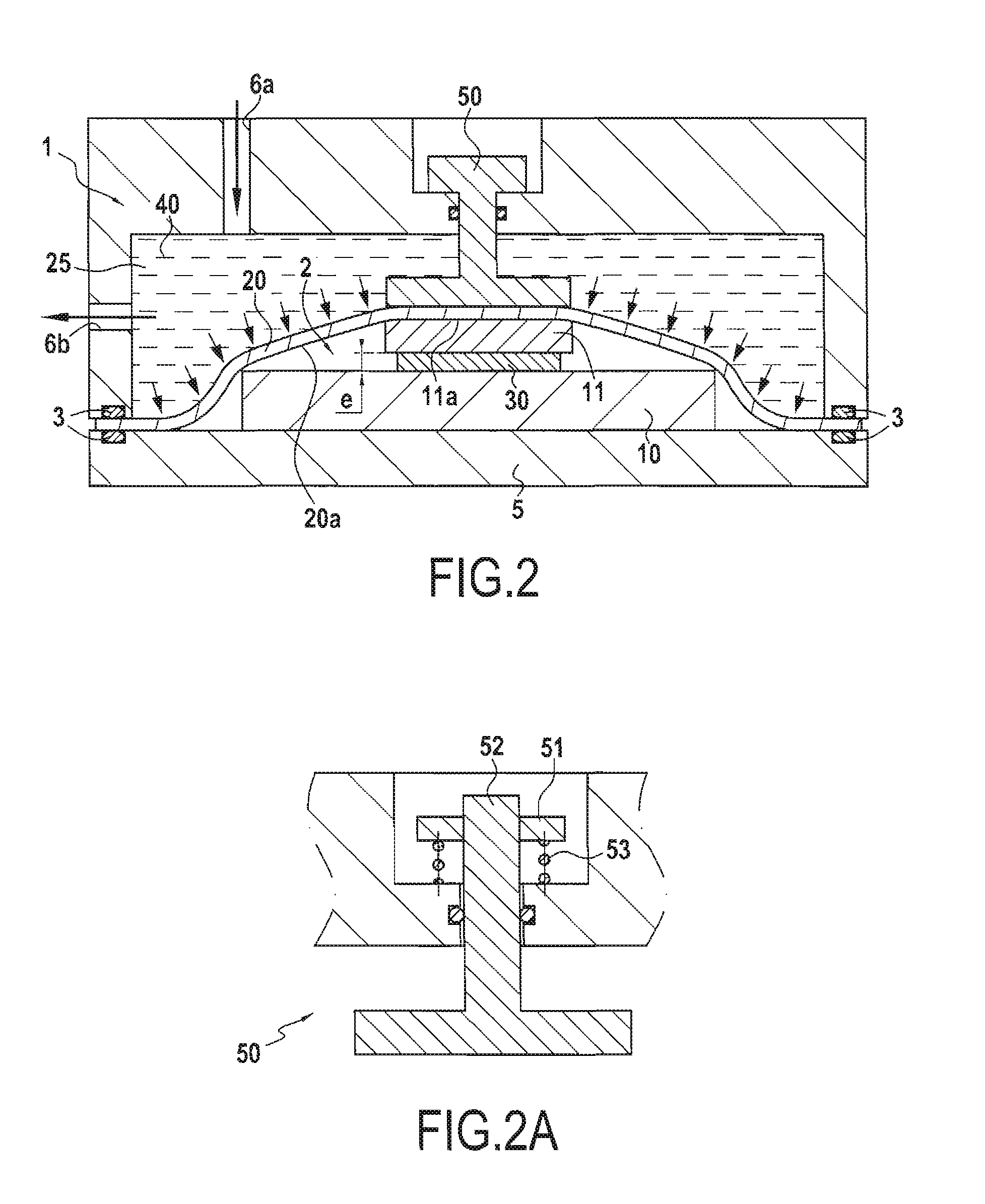Method for adhering parts and device for implementing said method
a technology of adhesive layer and parts, applied in the direction of machines/engines, other domestic articles, liquid fuel engines, etc., can solve the problems of reducing the mechanical properties of parts obtained by using the solution, imposing constant pressure together with a rise in temperature on the adhesive layer having a complex three-dimensional shape, and reducing the duration and cost of the method
- Summary
- Abstract
- Description
- Claims
- Application Information
AI Technical Summary
Benefits of technology
Problems solved by technology
Method used
Image
Examples
example
[0131]There follows an operating protocol for bonding a titanium leading edge onto a composite material blade comprising carbon fiber reinforcement densified by a PR520 epoxy resin, the bonding being performed within tooling made of steel.
[0132]The leading edge, the film of epoxy adhesive, and the blade are initially assembled together.
[0133]The resulting assembly is placed in a chamber defined by a shaped silicone membrane.
[0134]The assembly is heated to 160° C. and oil is applied against the membrane. The applied oil serves to exert a pressure of 3 bars and to enable the membrane to bear against the leading edge.
[0135]The assembly as put under pressure in this way is subjected to a temperature of 180° C. for 2 hours in order to bond the leading edge to the blade.
[0136]The term “comprising / containing a” should be understood as “comprising / containing at least one”.
[0137]The term “lying in the range . . . to . . . ” should be understood as including the limits.
PUM
| Property | Measurement | Unit |
|---|---|---|
| Fraction | aaaaa | aaaaa |
| Pressure | aaaaa | aaaaa |
| Volume | aaaaa | aaaaa |
Abstract
Description
Claims
Application Information
 Login to View More
Login to View More - R&D
- Intellectual Property
- Life Sciences
- Materials
- Tech Scout
- Unparalleled Data Quality
- Higher Quality Content
- 60% Fewer Hallucinations
Browse by: Latest US Patents, China's latest patents, Technical Efficacy Thesaurus, Application Domain, Technology Topic, Popular Technical Reports.
© 2025 PatSnap. All rights reserved.Legal|Privacy policy|Modern Slavery Act Transparency Statement|Sitemap|About US| Contact US: help@patsnap.com



